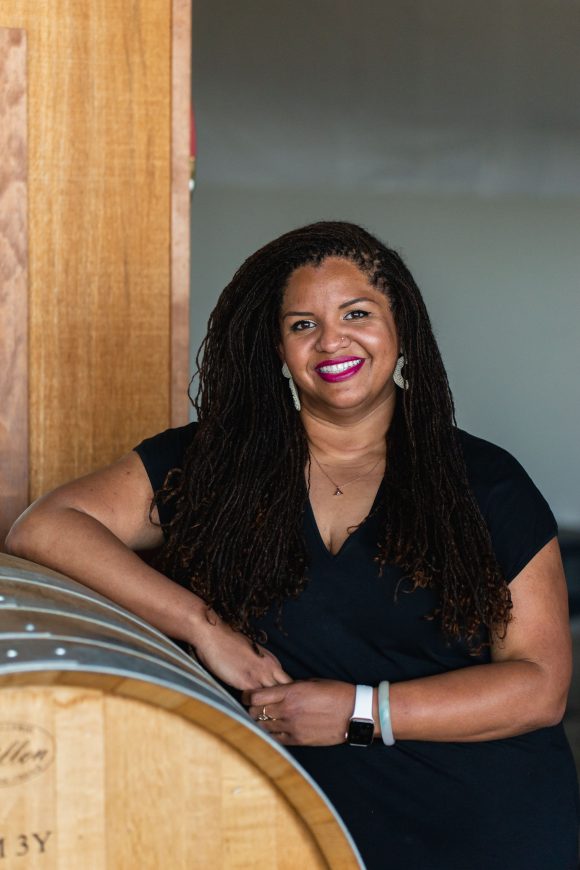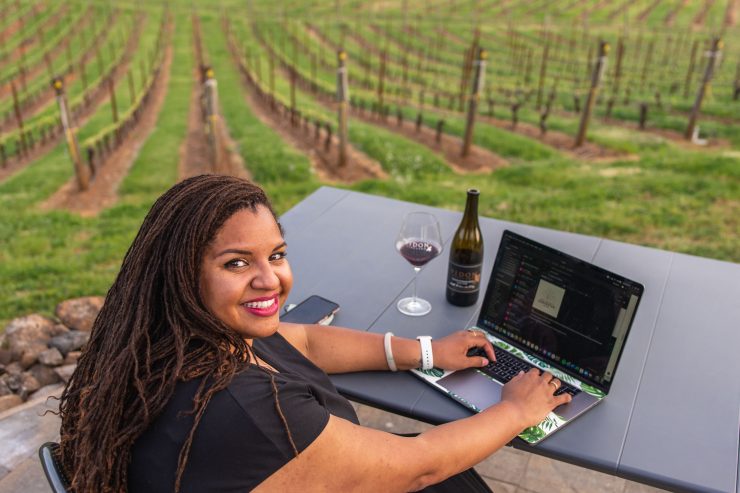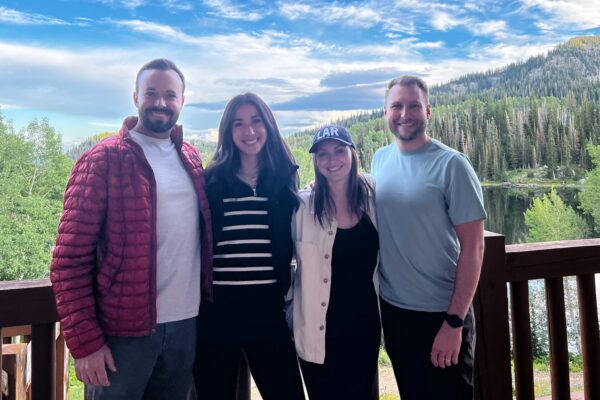 Tiquette Bramlett grew up with an appreciation for wine, visiting tasting rooms on family road trips in California and abroad. But it wasn’t until a brush with thyroid cancer cut short her career as a singer that wine became a major part of her life. Since training as a sommelier, she has worked as a tasting room associate and brand ambassador for wineries in Oregon’s Willamette Valley. Now, she has been appointed president of Vidon Vinyard, the first Black woman to hold such a position at a winery in a major U.S. wine region.
Tiquette Bramlett grew up with an appreciation for wine, visiting tasting rooms on family road trips in California and abroad. But it wasn’t until a brush with thyroid cancer cut short her career as a singer that wine became a major part of her life. Since training as a sommelier, she has worked as a tasting room associate and brand ambassador for wineries in Oregon’s Willamette Valley. Now, she has been appointed president of Vidon Vinyard, the first Black woman to hold such a position at a winery in a major U.S. wine region.
In 2020, in response to the summer’s social justice protests, Bramlett founded Our Legacy Harvested and hosted an open-air market designed to help support Black, Indiginous and People of Color (BIPOC) businesses. She is also organizing efforts to bring more BIPOC wine lovers into the industry and hopes to build a community where everyone feels welcome and safe. “I come from an interracial family. Having the uncomfortable conversation is secondhand to us, and I’m very comfortable having those conversations,” she said in a recent interview. “I’m not going to sit there and call somebody out. But I will call you in, and we’ll have an honest conversation about it, with no hard feelings.”
Who was the most influential person for you at Chapman? Why?
Both Nathan Lundy and Cesar Guerrero, because they always pushed me to be my best self, no matter what that looked like. They never wanted me to be conventional and allowed me to express my personal views. To have the most successful college experience, I had to do what made me happy. So if it meant I had to change majors, then that’s okay. It’s all a part of your journey. It’s all a part of your story. They never gave up on me. They always believed, supported and encouraged my potential. And I’m thankful that they are two men who are still in my life today.
If you could go back in time and experience one moment again from your time at Chapman, what would it be? Is there anything that you would do differently?
First, I’ll answer if I would do anything differently. No, I would not, because I believe that all my experiences at Chapman lead me to where I am today. That said, if I could go back, I’d return to the Galápagos Islands. It was a transformative experience because it cemented a friendship, pushed me out of my comfort zone and ignited a new wanderlust for travel.
What do you wish you knew at the time of your graduation that you know now? What advice can you give to the students and/or recent graduates of today?
I wish that I had known that Chapman will always hold a special place in my heart, but it does not need to be my whole world. There are friendships that last, moments that will never be forgotten, but it is also the start of a whole other chapter. It has prepared you, but it is also up to you to take those moments and build them into something even greater.
How did Chapman prepare you for your career? How did your experience prepare you for the real world?
Chapman allowed me to find my voice: learning to express my thoughts, face dissenting opinions while finding a way through, and declaring what I needed to succeed. Unapologetically. Those lessons have found their way into my daily life whether working in a tasting room, a board room or with family and friends.
What were the most challenging social/societal issue in our country/world that you faced as a young college student?
I came into Chapman knowing some of the societal issues happening in the world. As one of the few BIPOC members of the student body, I knew what to expect, but I didn’t know the full extent of the experience. From the dorm room to the classroom, there were experiences I chose to involve myself in because it was an opportunity for all sides to learn.
In society today, we’ve learned that being a global citizen needs to be redefined and the moments of self growth are fantastic, but your actions matter and are what really count. Those values have only been enhanced as time has passed.




